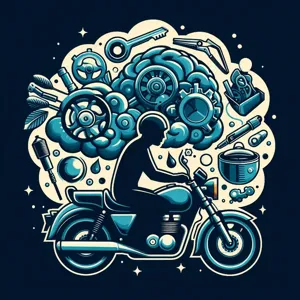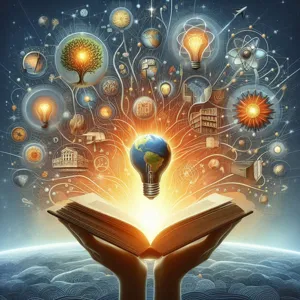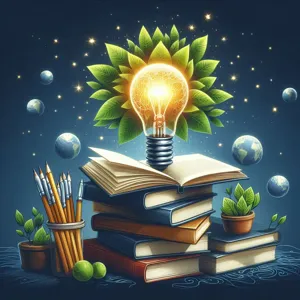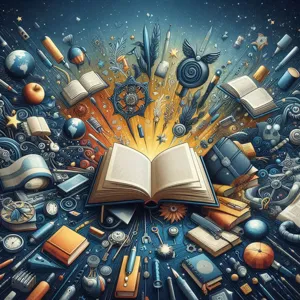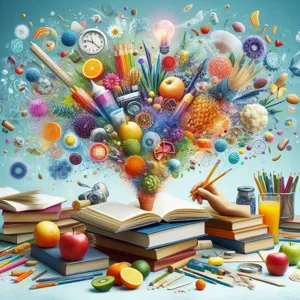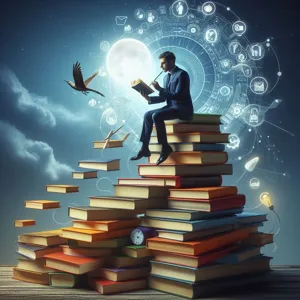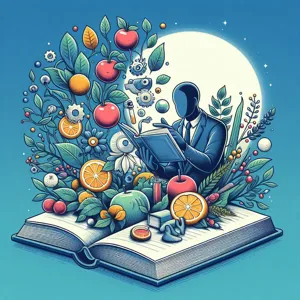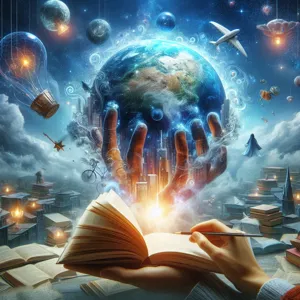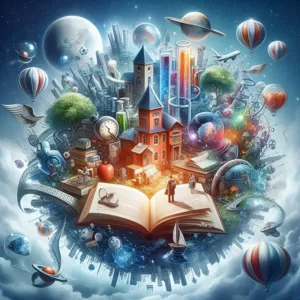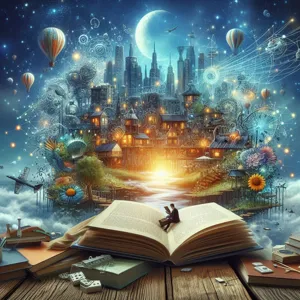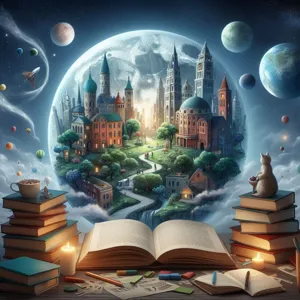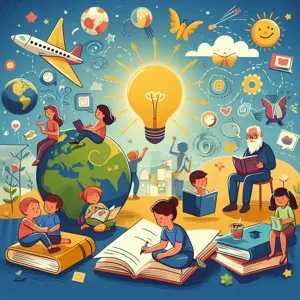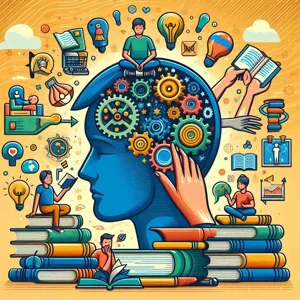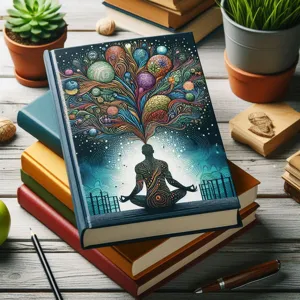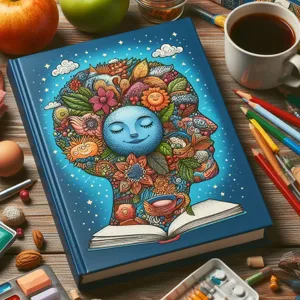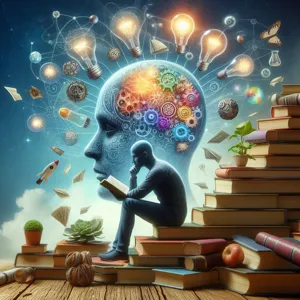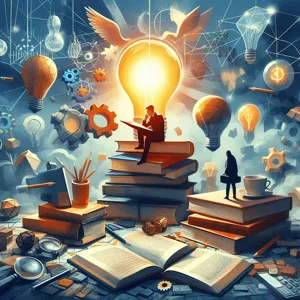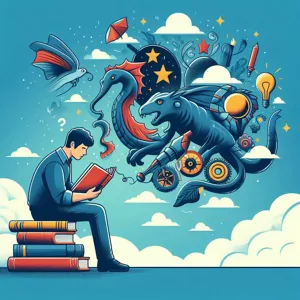The night sky has fascinated humanity for centuries, serving as a canvas for our dreams, fears, and curiosity about the universe beyond our reach.
As we gaze upward, we see countless stars twinkling like diamonds scattered across a velvet backdrop, each with its own story to tell. But what makes each star unique? In this blog post, we will embark on an awe-inspiring journey through the cosmos, unraveling the mysteries of the most common types of stars that populate our galaxy. From the brilliant blue giants that captivate with their immense heat to the understated red dwarfs that quietly illuminate the darkness, we will explain the characteristics, life cycles, and significance of these celestial bodies. Whether you’re an avid stargazer or a curious novice, join us as we delve into the captivating world of stars and discover the wonders they hold within their luminous cores.
1. Introduction to Stellar Classification

The vast expanse of the universe is dotted with countless stars, each radiating light and energy from its unique core. But how do astronomers make sense of the dazzling array of stars we observe? The answer lies in stellar classification, a systematic way of categorizing stars based on their distinct characteristics. This fascinating field of study not only helps us understand the life cycle of stars but also offers insights into the formation and evolution of galaxies.
At the heart of stellar classification is the spectral classification system, which sorts stars into groups based on their temperature, luminosity, and spectral characteristics. The primary classes—O, B, A, F, G, K, and M—are arranged in order of decreasing temperature, with O-type stars being the hottest, often exceeding 30,000 Kelvin, and M-type stars, the coolest, hovering around 2,500 Kelvin. Each class is further divided into subclasses, allowing astronomers to pinpoint a star’s specific traits more accurately.
But it’s not just temperature that defines a star; its mass, color, brightness, and even the composition of its atmosphere all play a role in how we categorize it. For instance, while the sun is a G-type star, its characteristics set it apart from other stars in the same category. This classification provides a framework that helps us decipher the mysteries of our universe, revealing how stars are born, live, and ultimately die.
As we embark on this journey through the cosmos, we’ll explore the most common types of stars, delving into their unique features and roles in the grand tapestry of the universe. Each star tells a story, and by understanding these stories, we gain a deeper appreciation for the intricate balance of celestial bodies that make up our night sky. So, let’s illuminate the darkness and discover the wonders of stellar classification together!
2. The Lifecycle of a Star: From Birth to Death
The lifecycle of a star is a breathtaking journey that unfolds over millions to billions of years, beginning with the nebulous clouds of gas and dust that permeate the cosmos. This process typically starts in a region known as a stellar nursery, where the gravitational forces pull together particles, forming dense clumps. As these clumps coalesce, they heat up and create protostars, the earliest stage of a star’s existence.
Once a protostar accumulates enough mass, nuclear fusion ignites in its core, marking its transition into a main sequence star. During this stable phase, which can last for billions of years, the star fuses hydrogen into helium, producing immense energy that radiates outwards, creating the light and warmth that sustains life on planets such as Earth. Our Sun is a perfect example of a main sequence star, shining steadily as it maintains a balance between gravitational forces pulling inward and the energy produced from fusion pushing outward.
As the hydrogen fuel begins to deplete, the star enters its next phase, expanding dramatically into a red giant. This is where things get particularly interesting. Depending on the star’s mass, it may undergo further fusion processes, creating heavier elements like carbon and oxygen. Massive stars, however, will eventually evolve into a supergiant, culminating in a spectacular supernova explosion, dispersing elements throughout the universe and contributing to the formation of new stars and planets.
For less massive stars, like our Sun, the journey concludes in a more gentle fashion. As it sheds its outer layers, it leaves behind a hot, dense core known as a white dwarf. Eventually, this remnant will cool and fade away, while the expelled material enriches the surrounding space, laying the groundwork for future stellar births.
The lifecycle of a star is a beautiful illustration of the cyclical nature of the universe, where creation and destruction are intertwined, and each star’s death paves the way for new life among the stars. Understanding this lifecycle not only deepens our appreciation for the cosmos but also highlights the interconnectedness of all celestial bodies, reminding us that we are all stardust, born from the remnants of these astronomical giants.
3. Main Sequence Stars: The Backbone of the Universe
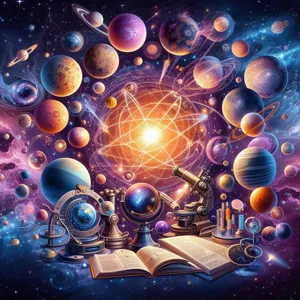
Main sequence stars are the backbone of the universe, making up about 90% of all stars and serving as the essential building blocks of galaxies. These stars are in a stable phase of stellar evolution, where they spend the majority of their lifetimes engaged in the remarkable process of nuclear fusion. At the core of a main sequence star, hydrogen atoms fuse to form helium, releasing immense amounts of energy in the process. This energy creates the outward pressure that balances the inward pull of gravity, allowing the star to maintain a stable size and temperature.
The most familiar example of a main sequence star is our very own Sun, which is classified as a G-type star. With a surface temperature of around 5,500 degrees Celsius (9,932 degrees Fahrenheit), the Sun emits a brilliant light and warmth that sustains life on Earth. Main sequence stars vary widely in size, color, and temperature. They are categorized into different spectral types, ranging from the scorching O-type stars, which can exceed 40,000 degrees Celsius (72,000 degrees Fahrenheit) and shine with a blue hue, to the cooler M-type stars, which are red and can be as cool as 2,500 degrees Celsius (4,500 degrees Fahrenheit).
One of the fascinating aspects of main sequence stars is their life cycle. Depending on their mass, they can spend millions to billions of years in this stable phase. Larger stars burn through their hydrogen fuel at a rapid pace, leading to shorter lifespans, while smaller stars, like red dwarfs, can exist for trillions of years, slowly evolving over time. Eventually, as they exhaust their hydrogen supply, main sequence stars will transition into the next phase of their life cycle, often becoming red giants or supergiants, before ultimately ending their journeys in spectacular fashion as supernovae or white dwarfs.
In essence, main sequence stars are not just the most common stars in the cosmos; they are fundamental to our understanding of stellar evolution and the dynamics of the universe. Their lifetimes, characteristics, and eventual fates contribute to the cosmic tapestry, making them a captivating subject for both astronomers and stargazers alike.
4. Red Giants: The Expanding Behemoths
Red giants are among the most fascinating celestial bodies in our universe, representing a significant phase in the life cycle of stars. These colossal behemoths arise when a star like our sun exhausts the hydrogen fuel in its core. As the core contracts under gravity’s relentless pull, the outer layers of the star expand dramatically, transforming it into a sprawling giant that can be hundreds of times larger than its original size.
Visually, red giants are a sight to behold. Their luminous, reddish hue is caused by the cooler temperatures of their outer layers, which can hover around 3,000 to 5,000 degrees Celsius. This lower temperature gives red giants their characteristic color, setting them apart from the hotter, bluer stars in the cosmos. Some of the most famous red giants, like Betelgeuse in the constellation Orion, can even be seen with the naked eye, twinkling magnificently in our night sky.
As red giants swell, they begin to shed their outer layers, creating stunning nebulae that enrich the surrounding space with the elements forged in their cores. This process is not only beautiful but also essential for the cosmic cycle of matter. The remnants of these stars can eventually lead to the formation of new stars and planets, contributing to the ongoing evolution of the universe.
However, the life of a red giant is not eternal. Eventually, these immense stars will shed their outer envelopes entirely, leading to their transformation into white dwarfs, leaving behind a dazzling planetary nebula. Understanding red giants not only helps us grasp the life cycle of stars but also sheds light on the intricate dance of creation and destruction that characterizes our cosmos.
5. White Dwarfs: The Remnants of Stellar Evolution
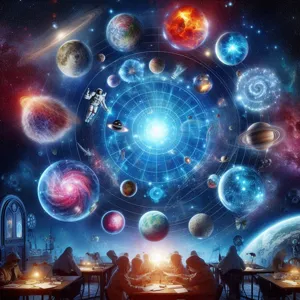
White dwarfs are fascinating celestial objects that serve as the remnants of stars like our Sun, having undergone a remarkable transformation through the stages of stellar evolution. Born from the ashes of once-mighty stars, these stellar corpses are typically about the size of Earth yet possess a mass comparable to that of the Sun. This incredible density arises as these stars exhaust their nuclear fuel and expel their outer layers, leaving behind a hot, dense core.
Once a star has completed its life cycle, it enters the red giant phase, during which it expands and cools. Eventually, it sheds its outer layers, creating a colorful planetary nebula. This process reveals the stellar core, which continues to shrink and heat up. The remaining core, now a white dwarf, no longer undergoes fusion reactions; instead, it gradually cools over billions of years.
Despite their small size, white dwarfs are incredibly hot, with surface temperatures reaching up to 100,000 degrees Celsius (about 180,000 degrees Fahrenheit) shortly after their formation. As they age, these stellar remnants emit their energy in the form of light, slowly transitioning from a brilliant white hue to a dimmer red color over time.
Interestingly, a white dwarf’s fate is not entirely sealed. If it finds itself in a binary system, it can attract material from a companion star, potentially reigniting nuclear fusion in a cataclysmic explosion known as a nova. In some cases, if enough mass is accumulated, it may even lead to a type Ia supernova, resulting in a spectacular cosmic event that can outshine entire galaxies for a brief period.
Ultimately, understanding white dwarfs not only provides insights into the life cycles of stars but also sheds light on the broader processes that govern the universe. Their study enhances our comprehension of stellar evolution, cosmic recycling, and the fate of stars, continuing to ignite the curiosity of astronomers and enthusiasts alike.
6. Neutron Stars: The Dense Core Survivors
Neutron stars are among the most fascinating and extreme objects in the universe, serving as a testament to the incredible forces at play during stellar evolution. Formed from the remnants of massive stars that have undergone a supernova explosion, these stellar corpses possess a density that is almost unimaginable. In fact, a neutron star is so dense that a sugar-cube-sized amount of its material would weigh about 6 billion tons on Earth!
At the heart of a neutron star lies a core primarily composed of densely packed neutrons, which are subatomic particles that carry no electrical charge. When a massive star exhausts its nuclear fuel, it collapses under the force of its own gravity, causing protons and electrons to merge into neutrons. This process creates an overwhelmingly dense object with a radius of only about 10 to 20 kilometers, yet it contains approximately 1.4 times the mass of our Sun.
Neutron stars also exhibit remarkable properties, including incredibly strong magnetic fields—trillions of times stronger than Earth’s—and rapid rotation, with some spinning hundreds of times per second. These fast-rotating neutron stars are known as pulsars, emitting beams of electromagnetic radiation that sweep across space like lighthouse beacons. When Earth lies in the path of these beams, we detect periodic pulses of radiation, allowing astronomers to study their properties and gain insights into the laws of physics under extreme conditions.
As we explore the cosmos, neutron stars continue to intrigue scientists and stargazers alike, serving as a bridge between the known and the unknown. Their existence raises profound questions about the nature of matter, the behavior of gravity under extreme conditions, and the ultimate fate of massive stars. In the grand tapestry of the universe, neutron stars stand out as remarkable survivors—dense, enigmatic, and waiting to reveal their secrets to those who seek to understand the cosmos.
7. Black Holes: The Mysterious Cosmic Giants

Black holes are among the most enigmatic and fascinating entities in the universe, often described as the cosmic giants that defy our understanding of the laws of physics. Formed from the remnants of massive stars that have exhausted their nuclear fuel, these dense regions of space exhibit gravitational forces so strong that nothing, not even light, can escape their grasp. This characteristic is what gives black holes their name and contributes to their mysterious allure.
Imagine a star that has reached the end of its life cycle, collapsing under its own gravity. As it implodes, it can create a singularity—a point of infinite density—surrounded by an event horizon, which marks the boundary beyond which nothing can return. The mass of a black hole can vary dramatically; while stellar black holes form from individual collapsing stars, supermassive black holes, which can contain millions to billions of times the mass of our Sun, are typically found at the centers of galaxies, including our own Milky Way.
The existence of black holes challenges our fundamental understanding of space and time. They warp the fabric of the universe, creating phenomena such as gravitational waves, which ripple through space when two black holes collide. Their presence can also influence the formation of stars and galaxies, making them key players in the cosmic ecosystem.
Despite their intimidating reputation, black holes are not cosmic vacuum cleaners indiscriminately sucking up everything around them. Objects must venture too close to the event horizon to be consumed, and from a safe distance, black holes can often be detected by observing the effects of their immense gravitational pull on nearby stars and gas.
As scientists continue to unravel the mysteries of black holes through advanced telescopes and theoretical models, they remain a tantalizing reminder of the vastness and complexity of the universe. Each discovery brings us one step closer to understanding these cosmic giants, revealing the intricate dance of matter, energy, and gravity that shapes our existence. The allure of black holes lies not just in their terrifying nature, but also in the endless possibilities they present for understanding the cosmos as a whole.
8. Blue Supergiants: The Short-Lived Luminaries
Blue supergiants are among the most breathtaking and dynamic stars in the universe, captivating astronomers and stargazers alike with their brilliant, azure hues. These colossal stars are not only distinguished by their vibrant color but also by their immense size and incredible luminosity. Typically, blue supergiants can be many times more massive than our Sun—often between 10 to 100 solar masses—making them some of the largest stars known.
What sets blue supergiants apart is their hot surface temperature, which can soar to an astonishing 30,000 degrees Celsius (or more), giving them their striking blue appearance. This extreme heat leads to an intense energy output, causing them to shine with a luminosity that can be thousands of times brighter than the Sun. Despite their awe-inspiring beauty, blue supergiants live fast and die young. Their lifespans are relatively short, usually lasting only a few million years compared to the billions of years that smaller stars, like our Sun, enjoy. This rapid lifecycle is due to their massive size, which accelerates the nuclear fusion processes in their cores, consuming their fuel at an alarming rate.
As blue supergiants exhaust their hydrogen fuel, they undergo dramatic transformations, expanding and cooling over time. Eventually, they may evolve into red supergiants, and their stellar journey culminates in a spectacular supernova explosion. This cataclysmic event not only marks the end of the blue supergiant’s life but also plays a crucial role in the cosmic cycle. The explosion disperses heavy elements into space, enriching the interstellar medium and providing the raw materials for new star formation and even planetary systems.
Studying blue supergiants gives astronomers valuable insights into stellar evolution, the life cycles of massive stars, and the mechanics of supernovae. As we continue to explore the cosmos, these short-lived luminaries remind us of the beauty and transience of the universe, shining brightly before ultimately returning to the star-studded tapestry of the night sky.
9. Variable Stars: Understanding Their Fluctuations
Variable stars are a fascinating category that captivates astronomers and stargazers alike, showcasing the dynamic nature of the cosmos. Unlike most stars that shine with a relatively consistent brightness, variable stars exhibit fluctuations in their luminosity over time. These changes can occur over various timescales, ranging from mere hours to several years, making their study both intriguing and complex.
There are several types of variable stars, each with its unique characteristics and mechanisms behind their brightness changes. For instance, **Cepheid variables** are renowned for their predictable pulsation periods, which can be used to measure cosmic distances. These stars swell and contract due to the interplay between gravity and radiation pressure, creating a rhythmic pattern of brightening and dimming.
Another notable type is **Mira variables**, which are red giants that experience dramatic changes in brightness, often varying by several magnitudes over a period of about 11 months. These stars provide insights into the later stages of stellar evolution and the processes that govern their life cycles.
Additionally, **Eclipsing binaries** present a different phenomenon where two stars orbit each other, causing one to periodically block the light of the other. This results in a characteristic light curve that fluctuates based on the alignment of the stars, offering valuable information about their sizes, masses, and orbital dynamics.
The study of variable stars not only enhances our understanding of stellar behavior but also serves as a critical tool for measuring distances in the universe. By analyzing their light curves and variations, astronomers can glean insights into the fundamental processes that drive stellar life cycles and contribute to the evolution of galaxies. In essence, variable stars remind us that the cosmos is anything but static, with a vibrant tapestry of activity and change awaiting our exploration.
10. Binary and Multiple Star Systems: A Dance of Stars
In the vastness of the cosmos, stars often don’t shine alone. Instead, they frequently engage in a cosmic ballet, forming binary and multiple star systems that captivate astronomers and stargazers alike. A binary star system consists of two stars that are gravitationally bound to each other, orbiting a common center of mass. This intimate pairing can give rise to fascinating phenomena, such as eclipses, where one star passes in front of the other, temporarily dimming its light as seen from Earth.
But the dance doesn’t stop with just two. Multiple star systems, which can comprise three or more stars, create even more intricate celestial choreography. Some of these systems feature a dominant star that shines brightly, while smaller companions dance around it in a delicate balance of gravitational forces. Others may be tightly packed clusters, where stars swirl around each other in a dazzling display of stellar motion.
The dynamics of these systems can vary widely. In some cases, the stars may be so close that they exchange material, leading to spectacular outbursts of energy and light. In others, they may be separated by vast distances, making their interactions more subtle but equally enchanting. Observing these systems allows astronomers to glean insights into stellar evolution, as the relationships between the stars can significantly impact their life cycles, formations, and eventual fates.
Moreover, binary stars play a crucial role in measuring cosmic distances and determining stellar masses, providing invaluable data that enrich our understanding of the universe. As you gaze up at the night sky, consider the possibility that many of the twinkling points of light you see are not solitary beacons, but part of intricate star systems engaged in an eternal dance, inviting us to explore the mysteries of their celestial relationships.
11. The Role of Stars in the Formation of Elements
Stars are not merely dazzling points of light in the night sky; they are the cosmic foundries where the elements that make up our universe are born. Throughout their luminous lives, these celestial giants undergo a series of nuclear reactions that not only fuel their brilliance but also forge the very building blocks of matter. Understanding the role of stars in the formation of elements reveals the intricate processes that have shaped the universe as we know it.
At the heart of every star lies a core where hydrogen atoms fuse to form helium, releasing colossal amounts of energy in the process. This fusion is the first step in the stellar life cycle and is responsible for the production of the light and heat that sustain life on planets like Earth. As stars evolve, particularly those that are more massive, they continue to amalgamate heavier elements through a process known as stellar nucleosynthesis.
During their lifetimes, stars can create elements such as carbon, oxygen, and even heavier metals like iron. The lifecycle of a massive star culminates in a spectacular explosion known as a supernova, scattering these newly formed elements across the cosmos. This stellar debris enriches the surrounding interstellar medium, providing the raw materials necessary for the formation of new stars, planets, and ultimately, life itself.
The significance of stars extends beyond their immediate environment; they are the architects of the universe’s chemical diversity. For instance, the carbon that forms the backbone of organic molecules—the very foundation of life—was synthesized in the hearts of ancient stars. When these stars exploded, they seeded the universe with the essential elements that would later coalesce into planets and, eventually, life.
In essence, stars are the cosmic alchemists, transmuting hydrogen into the rich tapestry of elements we see today. Understanding their role in element formation not only deepens our appreciation for these celestial bodies but also highlights the interconnectedness of the universe. Every atom in our bodies has a stellar origin, reminding us that we are all part of this grand cosmic cycle, forged in the fires of ancient stars.
12. How Stars Influence Galactic Evolution
Stars are not just luminous points in the night sky; they are powerful architects of the universe, shaping the very fabric of galaxies and influencing their evolution in profound ways. At the heart of every galaxy lies a dynamic interplay of stellar life cycles, gravitational forces, and cosmic events that collectively dictate a galaxy’s structure, size, and behavior.
As stars form from clouds of gas and dust, they initiate a process known as star formation, which can trigger the creation of new stars in nearby regions through shock waves and radiation. This phenomenon often leads to the emergence of stellar nurseries, where new stars ignite, illuminating the surrounding space and adding vibrant new components to the galactic tapestry. Over time, massive stars will burn through their nuclear fuel quickly, living fast and dying young in spectacular supernova explosions. These cataclysmic events not only disperse heavy elements into the interstellar medium but also can trigger further star formation, creating a cycle of birth and death that fuels galactic evolution.
Moreover, the gravitational pull of stars plays a crucial role in determining the structure of galaxies. The distribution of stars within a galaxy influences its overall shape—be it spiral, elliptical, or irregular. For instance, the density of stars in a spiral galaxy can lead to the formation of distinct arms, while elliptical galaxies, with their older stars, tend to have a more homogeneous appearance.
Additionally, the interactions between stars, such as collisions or mergers, can lead to the formation of new star systems and the redistribution of mass within a galaxy. These stellar encounters can also trigger phenomena like gamma-ray bursts or the formation of black holes, which further alter the dynamics of the galactic environment.
In essence, stars are the lifeblood of galaxies, their birth and death cycles shaping the cosmic landscape. By understanding how stars influence galactic evolution, we not only gain insight into the life cycle of our own Milky Way but also into the historical narrative of the cosmos itself. Each twinkling star in the night sky tells a story of creation, transformation, and the relentless march of evolution throughout the universe.
13. Observing Stars: Tools and Techniques
Observing stars can be one of the most awe-inspiring experiences, allowing us to connect with the vastness of the universe and appreciate the beauty of celestial bodies. To begin your journey into stargazing, it’s essential to equip yourself with the right tools and techniques that will enhance your experience and deepen your understanding of the cosmos.
**Telescopes and Binoculars**
While the naked eye can reveal many wonders of the night sky, employing telescopes and binoculars can take your observations to the next level. A good pair of binoculars can help you spot star clusters, the moons of Jupiter, and even the rings of Saturn. A telescope, on the other hand, opens a gateway to a more detailed view of celestial phenomena. With various types available—reflectors, refractors, and compound telescopes—you can choose one that suits your interests and budget. Remember, a stable mount is as crucial as the telescope itself, ensuring clear, shake-free views of the heavens.
**Star Maps and Apps**
Navigating the night sky can be challenging, especially for beginners. Star maps, which can be found in books or printed online, provide a visual guide to constellations and their locations throughout the year. Alternatively, modern technology has brought forth a plethora of astronomy apps that can turn your smartphone into a powerful star-finding tool. These apps often feature augmented reality capabilities, allowing you to point your device at the sky and identify stars, constellations, and even satellites in real-time.
**Observation Techniques**
Once you have your tools ready, mastering the art of observation is key. Choose a location away from city lights to minimize light pollution, and let your eyes adjust to the darkness for about 20 minutes—this will improve your ability to see fainter stars. When observing, take your time. Instead of rushing to identify every star, focus on a few and appreciate their details and differences. Keeping a journal of your observations can also enrich your experience, allowing you to track changes in the night sky over time.
**Joining Community Events**
Lastly, consider joining local astronomy clubs or attending stargazing events. These gatherings can be a treasure trove of knowledge, offering access to larger telescopes and experienced astronomers who can guide you. Sharing your passion with others not only enhances your learning but also deepens the communal experience of exploring the cosmos together.
By understanding the tools and techniques available for observing stars, you can embark on a rewarding journey through the night sky, uncovering the mysteries of the universe one star at a time. Whether you’re a novice or an experienced stargazer, there’s always something new to discover among the twinkling lights above.
14. The Cultural Significance of Stars Throughout History
Throughout history, stars have captivated the human imagination, serving as more than just distant celestial bodies; they have been integral to our culture, mythology, and navigation. From the earliest civilizations to modern societies, stars have played a crucial role in shaping our understanding of the world and our place within it.
In ancient times, stars were often viewed as divine entities, each carrying its own myths and stories. For the Greeks, constellations like Orion and Ursa Major became part of intricate tales of gods and heroes, passed down through generations. Similarly, in many indigenous cultures, the night sky was a rich tapestry of ancestral stories, guiding both spiritual beliefs and everyday practices. For instance, the Maori of New Zealand used the stars for navigation, with the Matariki cluster signifying the start of the new year and a time for harvest celebrations.
The significance of stars extends beyond mythology; they have been instrumental in the development of science. Early astronomers, such as Copernicus and Galileo, sought to understand the heavens, laying the groundwork for modern astronomy. Their observations of celestial patterns and movements not only advanced our scientific knowledge but also inspired artistic expressions, from Renaissance paintings to contemporary literature that continues to explore the relationship between humanity and the cosmos.
Moreover, stars have served as symbols of hope and guidance. The North Star, or Polaris, has historically been a beacon for travelers and explorers, offering a sense of direction in uncharted territories. This guiding light has also found its way into various cultural narratives, representing aspiration, resilience, and the pursuit of dreams.
In today’s world, the allure of stars remains strong, as they inspire a sense of wonder and curiosity. They remind us of our shared humanity, transcending borders and cultures. As we gaze up at the night sky, we are connected not only to the universe but also to the countless generations who have looked up in awe, seeking meaning and understanding in the constellations above. Through their enduring cultural significance, stars continue to illuminate our lives, encouraging us to explore the cosmos and our place within it.
15. Conclusion: The Importance of Understanding Stars
In conclusion, understanding the different types of stars enriches our appreciation of the cosmos and our place within it. Stars are not just distant points of light in our night sky; they are the very building blocks of the universe, each with a unique story to tell. From the fiery birth of a star in a swirling nebula to its eventual death, whether through a spectacular supernova or a gentle fading into a white dwarf, each phase of a star’s life cycle teaches us about the fundamental processes that govern our universe.
By studying stars, we gain insights into the formation of galaxies, the synthesis of elements, and the conditions necessary for life. They are the architects of the cosmos, influencing everything from the orbits of planets to the conditions on those planets. Moreover, understanding stars helps us grasp the scale of the universe and our own insignificance within it, fostering a sense of wonder and curiosity that has driven human exploration for centuries.
As we continue to advance in technology and astronomical research, our knowledge of stars will only deepen. This understanding is crucial, not just for astronomers, but for anyone curious about the universe. As we ponder the mysteries of the cosmos, let us remember that every twinkle we see in the night sky is a reminder of the vast, dynamic universe waiting to be explored. By delving into the science of stars, we not only uncover the secrets of the universe but also ignite a passion that can inspire generations to come.
As we conclude our journey through the cosmos, we hope this exploration of the most common types of stars has ignited your curiosity about the universe and its magnificent diversity. From the fiery brilliance of red dwarfs to the awe-inspiring luminosity of supergiants, each star type plays a unique role in the grand tapestry of the universe. Understanding these celestial bodies not only deepens our appreciation for the night sky but also enhances our comprehension of the life cycles that govern them. We encourage you to continue your stargazing adventures, armed with the knowledge of these stellar phenomena, and to share your newfound insights with fellow astronomy enthusiasts. The universe is vast and ever-expanding, and each star tells a story waiting to be discovered. Keep looking up!


